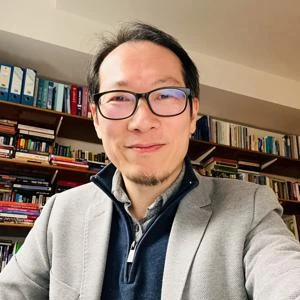Professor Shin, Hyun Bang

About
Professor Hyun Bang Shin is Professor of Geography and Urban Studies and the Head of the Department of Geography and Environment at the London School of Economics and Political Science.
Professor Shin is an internationally recognised scholar in urban studies whose research has profoundly influenced critical urban theory and practice, particularly in non-Western contexts. By challenging conventional perspectives and entrenched paradigms, he has contributed to reshaping the understanding of contemporary urban transformation, foregrounding the socio-political dynamics of cities in rapidly developing world regions and highlighting the intersections of state power, global capital, and urban inequality.
Spanning four core themes—gentrification, urban political economy, urban struggles, and the circulation of urbanism— Professor Shin’s scholarly contributions provide critical insights into the processes and impacts of urban transformation (see his Research web site for more details on these themes). His widely cited publications, including Planetary Gentrification and Global Gentrifications: Uneven Development and Displacement, have become essential readings for academics and practitioners alike. These works, along with his five other books (see below) and numerous journal articles, book chapters, and public writings, exemplify his dedication to addressing pressing urban challenges, advancing critical urban scholarship, and advocating for social justice in the context of the rapid urbanisation of the global South and the global East.
In addition to his influential research, Professor Shin has held pivotal roles in advancing urban studies. As Director of the Saw Swee Hock Southeast Asia Centre at LSE (2018–2023), he established it as a global hub for interdisciplinary scholarship. His tenure as editor of the International Journal of Urban and Regional Research (2021–2024) saw the publication of critical studies that expanded the field’s boundaries. As a trustee of the Urban Studies Foundation (2016–2023), he championed research funding and mentorship for emerging scholars worldwide. Since 2009, he has co-organised The Urban Salon, fostering vibrant discussions on architecture, cities, and international urbanism.
To view more details, please visit Prof Shin’s personal website.
View Hyun’s CV here.
View Google Scholar
Expertise
Cities; Infrastructure; Comparative studies; Displacement; Gentrification; Housing; Mega-events; Mega-projects; Urban (re-)development; Urban policy; Urban politics; City-making; Urbanisation; Urbanism